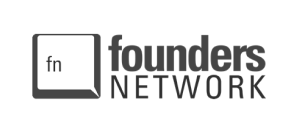This is an article to highlight and discuss the options you have as a non-technical founder in 2024. The technology will always evolve at great pace and therefore as a non technical founder of a prospective tech startup your options for getting started and in your formative years evolve as well.
I am going to assume that you (as a founder) have validated your idea on your own using some of the great resources online, through a pre-accelerator or via partners like Nebula. Now you may need to build an MVP or maybe you need to build something more complex with professional sustainable and scalable code.
—
The “free” option…
Do it yourself
This may sound a little nuts, and whilst you maybe be a non technical founder, honestly it is not. The question here is time and focus. With the development of NoCode and LowCode tools over the last 5 years you’d be shocked what is possible “off the shelf” with a bit of planning, research and heads down dedication.
Pros:
- Cheap (depending on how you value your time)
- You can learn how user flows and logic within product development works
- If your first product doesn’t work out you will have developed skills to go again
Cons:
- Time. We are talking 3-6 months to really get a grasp on how this will operate and for you to become dangerous.
- Time. Are others going to beat you to market?
- Time. All the time you are spending actually putting together your tech you are not learning from your customers, developing the business concepts or building vital relationship
—
Paid options…
Find a freelancer
Pretty straightforward right? Find someone on UpWork and ask them to build what you need.
Pros:
- If you search around you will be able to gain access to offshore reputable people at a decent price.
- Hiring will allow you to focus on building the business
- If things go well you may be able to bring them on full time in the long term
Cons:
- How to judge what good looks like? You’re non technical, how can you judge technical skills?
- It can be difficult to describe your requirements. How do you write user stories? How do you check the quality of the work? How do you keep track of time spent and project costs?
- How can you set up the contracts to ensure that you are safe and your precious budget is respected and look after. There are plenty of honest hardworking freelancers out there, but there are plenty after a fast buck as well.
—
Hire an Agency
Professional, experienced and potentially local. Great.
Pros:
- In the main, agencies are experienced and motivated to build and maintain long standing relationships.
- Breadth of skills. Agencies are typically more than one person and therefore you will have access to design, front end, backend, NoCode builders etc
Cons:
- Cost. The agency model is designed to make margin on the people they employ. It is classic professional services.
- Because of the model agencies need to ensure they have the right business mix and get paid as much as they can for the hours they do. There are genuine risks around an agency needing to take other work over yours leaving you stranded.
- Most agencies specialise in supporting later stage businesses. This means they typically work fixed price (be that value pricing or per day) and that isn’t very agile. Your startup needs agility.
—
Find a technical co-founder
This is an individual who has the capability to build your company with you. This person is rare. Services exist to help you find this type of person e.g Antler, but it is difficult and time consuming.
Pros:
- An invested person with skin in the game (think 30-50%) of the person to incentivise them
- Highly likely to pull out the stops, work hard and think creatively. They win when you win
- Much like the freelancer, you could find someone great that will be with you long term
Cons:
- This is like getting married after a few dates. You will have a co-founder relationship. Prepare to listen and prepare to work on the relationship.
- The chances of finding a suitable technical co-founder who believes in what you are doing and is willing to get paid under market rate for the chance of success is rare. If they are good they will get head hunted constantly.
- You are going to have to give a significant proportion of your startup to this person. You have to incentivise them.
—
Fractional CTO + outsourced team
This is a collaboration between a technical leader who is working across multiple startups and a team that the fractional CTO manages. This team is unlikely to be “owned” by the FCTO but they will likely have a relationship with the team.
Pros:
- Assuming you get enough of the FCTO’s time you will likely be in receipt of solid advice – especially if this FCTO has built early stage product before
- In the main these relationships tend be an onshore FCTO and an offshore dev team. This means you will likely be able to access lower cost rates.
- As with the agency model, you will be able to access a breadth of skills that is less likely working with an individual
Cons:
- There is a chance that your FCTO is too fractional. It is a similar vibe to an agency here. An FCTO is incentivised to back the best horse and by the nature of being an individual is time constrained.
- Your FCTO and development team are not the same team and may be driven by different incentives.
- What the timezones. We have seen many scenarios where the local FCTO is in a very different time zone to the people delivering the product. You need timezone coverage to be effective
- Scalability. If you need more time from your FCTO as your business grows you may find that by the nature of the agreement this is not possible.
- Control. You are really relying on your FCTO to deliver here. If the relationship break downs you could be left managing a complex relationship.
—
Co-Founding Venture Studio
This is a new concept, coming to prominence in the last 5-6 years. This is an organisation that has matured the fractional CTO and outsource team concept and internalised it all to become a fractional CTO and team as one company.
Pros:
- You get all of the fractional CTO input you need from a broader group of experienced people
- The teams are typically “owned” and therefore incentives are aligned with one organisation
- Costs are comparable to that of a fractional CTO + outsourced team
- As with the agency model there is a breadth of skills under one room
- Many Co-Founding Venture Studios will have flexible engagement models to allow for an equity + cash approach – in the region of 5-15% depending on the studio.
- They are startup specialists.
Cons:
- It is still strictly external. However if you sign an equity deal they will be on the cap table and incentivised
—
And there you have it. Hopefully this helps on your onward journey as a non technical founder in 2024
MOHARA is a Co-Founding Venture Studio founded in 2015 and with a portfolio of 35 companies. If you are a non technical founder with a validated idea and looking for an invested partner please reach out and we can discuss your startup.











